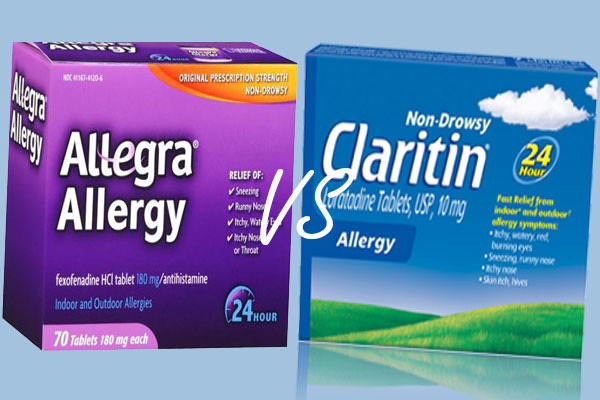Seasonal Allergies
Typically, you are not born with allergies but develop them over time. When people first start to develop allergy symptoms, they often think it’s a cold. They then begin to take cold medicine and wonder why it’s not helping. Unfortunately, it may be seasonal allergies that change over time. For example, you may have an allergy to something like ragweed, also known as hayfever. Later on in life, you may develop a different allergy in the same family like grass or tree pollen.
Because pinpointing what your triggers are can be expensive and challenging, many opt for an over-the-counter medication like Claritin or Allegra. They are both considered antihistamines. When your body encounters something it sees as a threat (an allergy), it produces histamines to thwart off the “danger.” Antihistamines block these side effects so you can enjoy your life without the uncomfortable hindrance of allergy symptoms.
Claritin
- Slightly sedating
- Treats: sneezing, runny nose, itchy eyes, throat and nose, watery eyes
- Preferred during pregnancy
- Treats seasonal allergies and chronic hives
- Works best after two hours
- Medicinal liquid option for children as young as two years
- Not the best choice for someone with liver impairment, as it metabolizes in the liver
Allegra
- Non-sedating
- Treats: sneezing, runny nose, itchy eyes, throat and nose, watery eyes
- Generally considered “safe” for breastfeeding mothers
- Treats seasonal allergies and chronic hives
- Works best after three hours
- Oral option for children as young as six years
- A better choice for someone with liver impairment
You may want to try both products to see what works best for your allergies. However, we hope you feel more prepared to make a decision the next time you are at the store. Let the guessing game end!
Allergies are a nuisance, but your medicine choice shouldn’t be! If you have further concerns about your allergies, contact Advanced Respiratory Care Network today.

